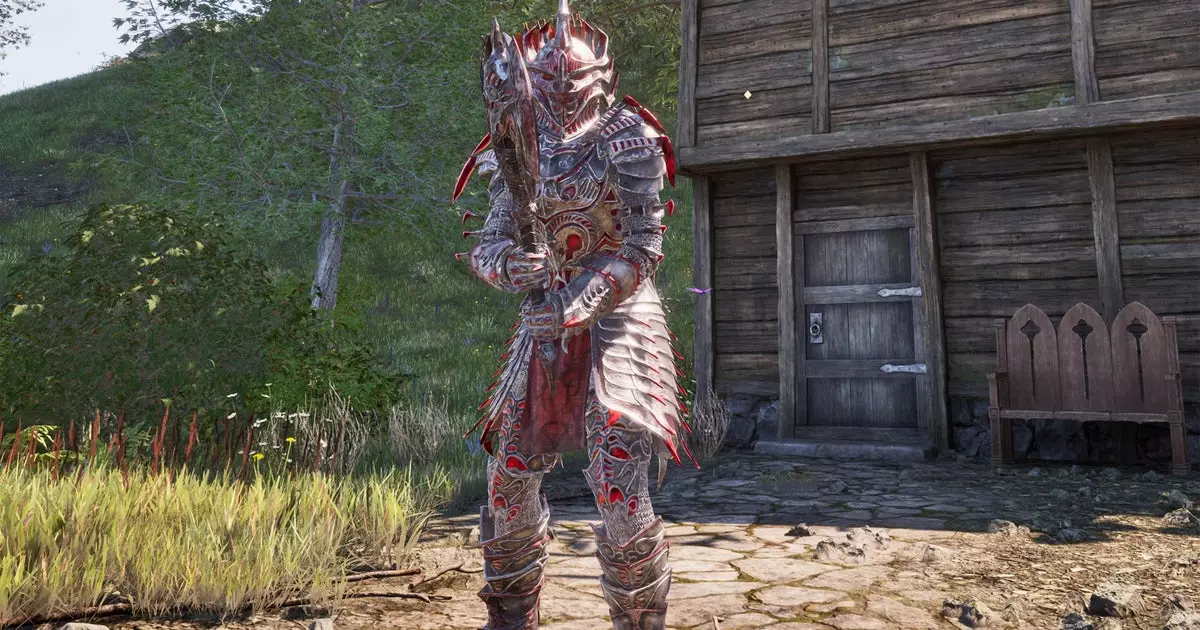In the expansive realm of video game modding, creativity knows no bounds. One striking example is the “Glory Holes Of Oblivion” mod for The Elder Scrolls IV: Oblivion, a beloved open-world RPG that still captivates players years after its original release. This mod introduces an innovative mechanic where players can use arrows and spells not just through conventional pathways, but also through holes in gates — a quirky twist that serves a specific gameplay function. It’s this surreal blend of utility and whimsy that captures the essence of modding: transforming an already rich experience into something even more bizarre and entertaining. However, the mod has found itself categorically labeled as containing “adult content” on NexusMods, which raises questions about the implications of such classifications in the gaming community.
Beyond the Surface: Understanding the Etymology
A critical analysis of the mod necessitates a moment of introspection regarding its name. The term “glory hole” connects to historical meanings that might not be immediately apparent to the casual observer. Initially used to describe a disorganized space for storage, its etymology begins to reveal layers of societal commentary buried within casual gaming humor. This hidden depth often escapes the majority of players who focus solely on gameplay mechanics. Scholars of language and culture may find the sociocultural context of the term particularly compelling, tracing it from an innocuous reference to something far more risqué and intimate, reflecting shifts in societal norms and attitudes towards sexuality over centuries. Such a nuanced understanding adds an intellectual layer that challenges gamers to contemplate the history behind the terms they encounter, fostering a deeper appreciation for the language of their engagement.
The Transformation of Glass and Context
In a world where glassblowing techniques evolve alongside modern interests, the historical background surrounding “glory holes” takes an interesting turn. A reference from “Curiosities of Glass Making” outlines the origin as linked to a specific heating method in glass production, where large objects are reheated in an area called the “glory hole”. This bridge between art and craft speaks volumes about how language morphs and how societal perceptions can be reshaped over time. The duality of the term illustrates a beautiful complexity: it transcends its craftsmanship roots to encapsulate modern societal challenges regarding visibility and privacy among queer communities. The historical application of the term provides a prism through which we can not only review our present-day context but also dissect the intricacies of social constructs that are often overlooked in gaming discourse.
Gaming, Identity, and the Modern Discourse
The provocative nature of a mod like “Glory Holes Of Oblivion” does more than just entertain; it provokes discussion around the intersection of gaming, sexuality, and identity. While the mod instigates laughter through the juxtaposition of its mechanics and its name, it serves as an entry point into broader conversations about LGBTQ+ representation in gaming. In an era where many creators strive for inclusivity, the audacity of incorporating adult themes signals a burgeoning acknowledgment of diverse identities within gaming. Critics may argue that representing such themes may risk relegating the community to fleeting giggles rather than focusing on meaningful representation, yet one cannot dismiss the relevance of open dialogue. It challenges the status quo, urging gamers to confront the societal constructs they often navigate.
The Skeleton Problematic: A Humorous Perspective
The narrative surrounding the mod isn’t solely intellectual; it involves humor intertwined with critique, symbolized through the personification of a skeleton awaiting its fate while reveling in the absurdity of the situation. This character compels players to question the implications of their digital escapades and serve as a reminder that humor often swims alongside deeper themes. It presents an opportunity for players to engage outside their comfort zones, prompting contemplation of how gaming can display spectrums of identity playfully and provocatively. It encapsulates the essence of many mods: they are platforms for exploring unorthodox ideas while also providing an avenue for whimsical humor.
Through “Glory Holes Of Oblivion,” we are invited not only to participate in a novel gaming experience but also to enrich our understanding of the cultural, social, and historical influences shaping our interactions with digital spaces. The journey through this playful yet profound mod tells us that gaming is no longer just a pastime; it is a dynamic reflection of ourselves and our societies.


Leave a Reply